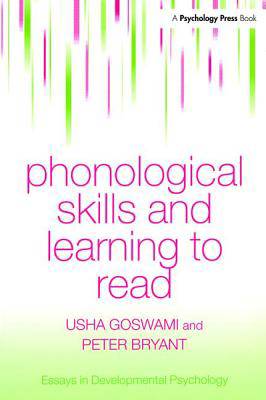
- Afhalen na 1 uur in een winkel met voorraad
- Gratis thuislevering in België vanaf € 30
- Ruim aanbod met 7 miljoen producten
- Afhalen na 1 uur in een winkel met voorraad
- Gratis thuislevering in België vanaf € 30
- Ruim aanbod met 7 miljoen producten
Omschrijving
This book sets out to integrate recent exciting research on the precursors of reading and early reading strategies adopted by children in the classroom. It aims to develop a theory about why early phonological skills are crucial in learning to read, and shows how phonological knowledge about rhymes and other units of sound helps children learn about letter sequences when beginning to be taught to read.
The authors begin by contrasting theories which suggest that children's phonological awareness is a result of the experience of learning to read and those that suggest that phonological awareness precedes, and is a causal determinant of, reading. The authors argue for a version of the second kind of theory and show that children are aware of speech units, called onset and rime, before they learn to read and spell. An important part of the argument is that children make analogies and inferences about these letter sequences in order to read and write new words.
Specificaties
Betrokkenen
- Auteur(s):
- Uitgeverij:
Inhoud
- Aantal bladzijden:
- 174
- Taal:
- Engels
- Reeks:
Eigenschappen
- Productcode (EAN):
- 9780863771514
- Verschijningsdatum:
- 25/12/1990
- Uitvoering:
- Paperback
- Formaat:
- Trade paperback (VS)
- Afmetingen:
- 161 mm x 233 mm
- Gewicht:
- 312 g

Alleen bij Standaard Boekhandel
Beoordelingen
We publiceren alleen reviews die voldoen aan de voorwaarden voor reviews. Bekijk onze voorwaarden voor reviews.











